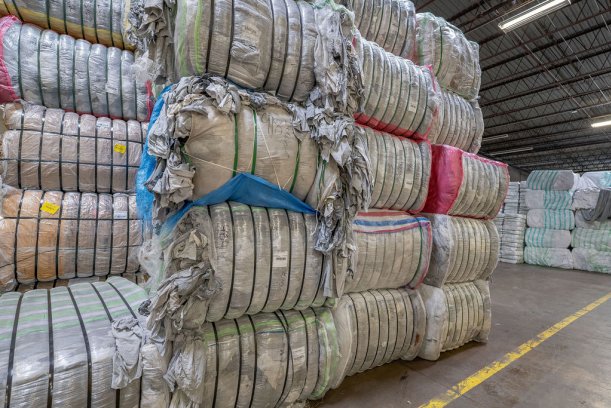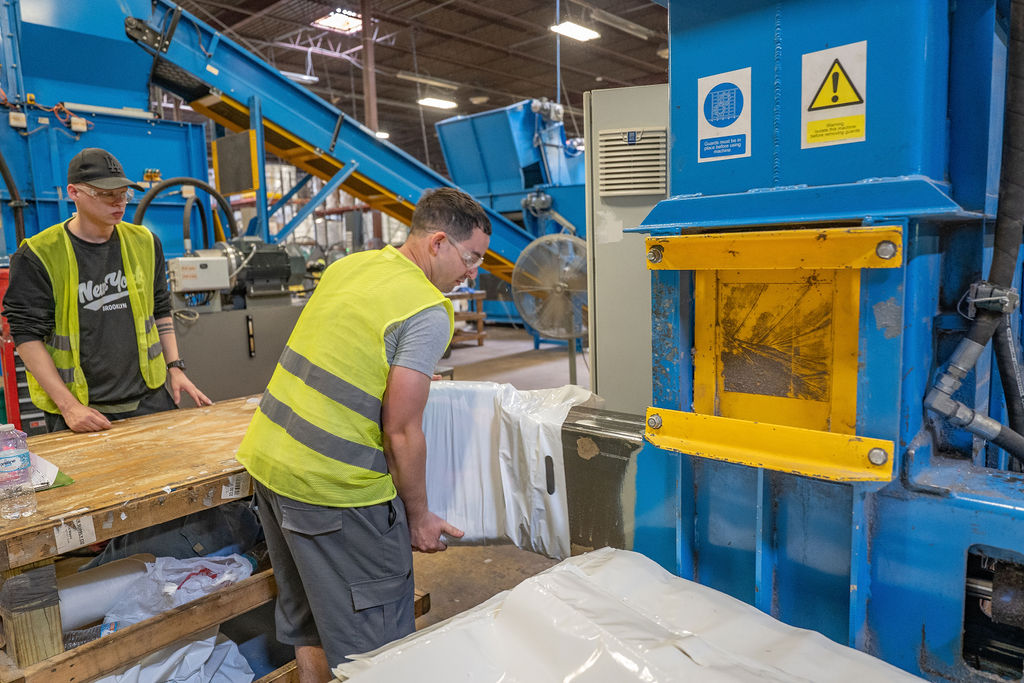
Filippa K to launch Once More pulp collection
Interview with Craig McAndrews, CEO of Dallas-headquartered RTCM USA, the largest textile recycler in North Texas.

28th April 2025
Innovation in Textiles
|
Dallas, TX, USA
With the acquisition of United-Southern Waste (USW) in January this year, Dallas-headquartered RTCM USA has become the largest textile recycler in North Texas. Innovation in Textiles spoke to CEO Craig McAndrews about the future prospects for this industry in the USA.
Innovation in Textiles (IiT): Can you tell our readers a little about the background of RTCM USA and your key activities and markets?
Craig McAndrews (CMcA): RTCM was founded in 1994 and we’re first and foremost a textile recycler aiming to divert this waste from landfills. We have two methods for repurposing textiles through our businesses World Wear Project and Reclaimed Cleaning Textiles. The first is to package good quality garments up and send them to underdeveloped communities in Central and South America to fuel the second-hand clothing market. If the waste is beyond wearing again, we turn it into industrial cleaning rags for multiple industries. Our Royal Rags brand is a proven and well-respected name throughout the oil and gas, industrial janitorial and painting industries. RTCM has had a strong presence in the North Texas area since its formation and in 2023 private investment firm Greybull purchased the business with the intention of expanding, which has led to the acquisition of USW at the start of this year.

IIT: What technologies are you using and can you accommodate all waste textiles?
CMcA: We have a lot of automated machinery driving our mechanical recycling processes to handle large quantities and help support the processing of materials. We can handle almost all textiles but we don’t always have good outlets for everything. The upside is that we divert a lot of material from landfills but the trade-off is we inevitably have to throw some of what comes in away. Right now we’re trying to resolve that and ultimately I’d like to create a zero waste business. Upcycling is both a great opportunity but it’s also early in the development stage and there are not a lot of people successfully doing it at scale as yet.
IIT: What are the key challenges involved in recycling textile waste?
CMcA: For us there’s a big supply and it’s continued to expand as a result of the growth of fast fashion. Handling supply is always a big challenge and we’ve added infrastructure to try and keep up with it. It’s a constant point of pressure. The other part of it is finding enough buyers for our products and providing them with the correct materials. Directing materials where they are needed is always a challenge.
IIT: How is the waste generally collected and what are your key supply sources?
CMcA: We have a sizeable number of collection bins and we specialise in partnering with schools and non-profits. Around 85% of our bins are placed in schools as one collection channel. Another is through charitable organisations, thrift stores and faith-based groups. We have a fleet of 53-foot trailers placed at the facilities of our partners which are loaded up for collection and ensures us a constant flow of materials.
IIT: Are transportation and storage big factors in running profitably?
CMcA: Yes, transportation costs continue to rise as well as insurance cover, which results in a lot of challenges at the scale we’re talking about, but this is a strong differentiator in terms of service. We utilise a technology platform to manage our logistics business, both from a scheduling standpoint and vehicle safety monitoring, with all of our vehicles equipped with cameras and constantly monitored.

IIT: Do you see any untapped potential new markets out there?
CMcA: Over the next five years I think domestically there’s going to be a lot of opportunities for partnering with manufacturers, retailers and first line operators who are increasingly focused on sustainability. They are now exploring what they can do with what they can’t sell and organisations like ours who are investing in infrastructure and partnering with the right outlets are the businesses they will want to work with. Entirely new supply chains will be introduced that will need help.
IIT: Textile recycling is a hot topic in Europe, following the ban on its landfill disposal or incineration, creating an instant annual 7 million tons that needs to go somewhere. What’s the situation in the USA, and how do you see things moving in the next few years? Is there likely to be similar legislation?
CMcA: There already is, with the first Extended Producer Responsibility (EPR) framework for textiles passed in California last October. This is an early legislative decision here in the United States that we think is going to fuel more collaboration and more partnering on handling the supply. It shifts the responsibility to the manufacturer but ultimately the size of the potential supply and what to do with it is a big problem. That’s the challenge that everybody’s trying to navigate and collaboration and partnerships are going to be the path to finding responsible solutions.
IIT: Now you have acquired United-Southern Waste (USW), which is also based in Dallas. What are your immediate plans going forward?
CMcA: USW also specialises in the recycling and repurposing of clothing and wiping rags, which are sold across global markets. We had space limitations at our existing facility and the acquisition has enabled us to relocate our clothing business there, which is now complete. While the two components of our business are now being organised to stand separately, we’re integrating in terms of processes, people and customers, which will occupy us for the next six months. Our plan then is to fuel organic growth and if there are additional acquisitional opportunities we’ll be exploring them. The textile recycling industry here in the USA is fairly fragmented with a lot of small regional operations. Coming together to build bigger infrastructure will enable us to partner with the companies out there who need our support. We’ll also be looking to invest in further automation. Our vision is to divert 100 million pounds of textiles from landfills on an annual basis but right now there is a good deal of market uncertainty, so adaptability may be called for.

Business intelligence for the fibre, textiles and apparel industries: technologies, innovations, markets, investments, trade policy, sourcing, strategy...
Find out more